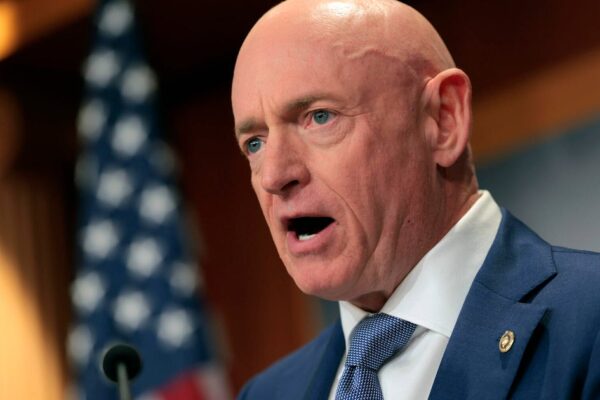
BTS’ Parent Company HYBE Just Launched In India: What It Means
**HYBE Officially Launches in India, Signaling Major Expansion Amid Industry Challenges**
HYBE, the South Korean entertainment powerhouse behind global sensations like BTS and girl group KATSEYE, officially announced its launch in India this week via social media. The company opened its Mumbai headquarters in September 2025, marking its fifth international office alongside existing locations in Japan, the United States, Latin America, and China.
### Expansion Amidst Domestic Challenges
The timing of HYBE’s expansion is notable, coming amid significant challenges at home. HYBE Chairman Bang Si-hyuk is currently under investigation by South Korea’s Financial Supervisory Service over allegations related to the company’s 2020 IPO. In September 2025, Bang was questioned by police for 13 hours concerning accusations of earning roughly $140 million in illicit profits.
Additionally, a Seoul court ruled in late October in favor of HYBE’s ADOR subsidiary, rejecting girl group NewJeans’ attempt to suspend their exclusive contract. Despite these domestic hurdles, HYBE’s move into India aligns with a broader trend of global music companies increasing investments in the rapidly growing Indian market.
### K-Pop’s Growing Popularity in India
According to the Korea Foundation for International Cultural Exchange, K-pop streaming in India surged by 362% between 2018 and 2023, highlighting the genre’s rising popularity. This growing audience presents a significant opportunity for HYBE’s India strategy.
### HYBE’s India Strategy
HYBE Chairman Bang Si-hyuk expressed confidence in the company’s approach, telling *Maeil Business Newspaper*, “The strategy of securing a foothold in the world’s major music markets and applying this methodology is producing results, and if the current trend continues, the landscape of the global music market dominated by the Big 3 global companies will change significantly.”
HYBE’s “multi-home, multi-genre strategy” focuses on achieving market dominance by integrating local culture and characteristics—a tactic already proven successful with groups like KATSEYE. Notably, KATSEYE member Lara Raj is Tamil-American, reflecting HYBE’s commitment to cultural integration.
The Indian branch plans to recruit artists via local auditions and establish a training system tailored to the Indian market. Additionally, it will support HYBE artists’ activities within India. Essentially, HYBE is bringing the K-pop playbook—intensive training, data-driven fan engagement, and multimedia content strategies—to Indian talent.
### A Gold Rush in the World’s Most Populous Nation
HYBE’s arrival is part of a larger wave of international investment flooding India’s music industry since 2024. Key moves include:
– Warner Music Group’s minority investment in live entertainment platform SkillBox and acquisition of artist management company E-Positive.
– Universal Music India securing a majority stake in TM Ventures.
– Sony Music acquiring a major catalog from Eros.
– Reservoir Media’s Mumbai subsidiary, PopIndia, signing its first catalog deal with Musiccraft Entertainment.
– Primary Wave’s joint venture with Times Music acquiring two Indian companies.
According to music business analysis firm Music Ally, the six biggest music companies in India saw combined revenues increase 6% to ₹3,843 crore in 2024, though growth was uneven. For example, T-Series, India’s largest label, experienced a 6.4% revenue decline, while Warner Music India’s revenue soared by 181%, Universal Music India grew 13%, and Sony Music India advanced 4%.
### The Monetization Challenge
Despite booming audience numbers and investments, India’s music industry faces a critical challenge: converting its massive audience into sustainable revenue. The recorded music industry in India is currently valued at ₹3,200 crore (approximately $378 million) but dropped to 15th place in the IFPI’s global rankings in 2024 due to flat revenues.
The issue isn’t engagement—India produces 20,000 to 25,000 original songs annually through a thriving community of over 40,000 music professionals. The hurdle lies in monetization.
“Unless the subscription business takes off in India, we have a problem coming our way,” Vikram Mehra, Managing Director of Saregama, told *Music Ally*. While paid on-demand subscriptions rose from seven million in 2023 to 10.5 million in 2024, generating subscription revenue of $81.81 million (INR 7 billion), the paid conversion rate remains low relative to India’s 185 million streaming users.
HYBE and other global players are betting they can help solve this puzzle by introducing professional artist development, sophisticated marketing strategies, and global distribution networks to a market bursting with talent and audiences but struggling to capture sustainable value.
### What Comes Next
According to EY and FICCI, the Indian music industry is projected to grow from ₹24 billion at the end of 2023 to ₹37 billion by 2026. Whether this projection is met depends largely on overcoming the monetization challenge.
What’s clear is the global music industry no longer sees India as a distant opportunity—it’s happening now. HYBE’s Mumbai headquarters, the formation of boyband OutStation and girl group W.i.S.H, alongside numerous acquisitions and partnerships, demonstrate that investors and companies believe India’s time has arrived.
For Indian artists, this means access to world-class training, production, and marketing resources previously out of reach. Music fans can expect more diverse content, larger productions, and Indian acts poised to compete on the global stage. For investors, it’s a race to secure dominant market positions before value capture mechanisms fully mature.
### HYBE’s Symbolic Entry into India
HYBE’s entry is perhaps the most symbolic development in this wave of change. As the company that turned K-pop into a global phenomenon, mainstreamed Korean language music on Billboard charts, and revolutionized fan engagement and artist development, HYBE is now applying its expertise to India.
The next BTS might not just be singing in Korean anymore—it could be an Indian act, poised to make waves worldwide.
https://bitcoinethereumnews.com/finance/bts-parent-company-hybe-just-launched-in-india-what-it-means/
You may also like
参考资料
You may be interested
Globe bets on prepaid fiber, sets expansion
No content was provided to convert. Please provide the text...
Bragging rights up as Samal makes 5150 debut
A stellar Open division field will be shooting for the...
DigiPlus launches P1-M surety bond program
MANILA, Philippines — DigiPlus Interactive Corp. has partnered with Philippine...
 The New York Times
The New York Times
- Department of Homeland Security Shuts Down, Though Essential Work Continues 2026 年 2 月 14 日 Madeleine Ngo
- Casey Wasserman Will Sell Entertainment Agency Amid Epstein Files Fallout 2026 年 2 月 14 日 Shawn Hubler, Ben Sisario and Emmanuel Morgan
- New Research Absolves the Woman Blamed for a Dynasty’s Ruin 2026 年 2 月 14 日 Andrew Higgins
- How China Built a Chip Industry, and Why It’s Still Not Enough 2026 年 2 月 14 日 Meaghan Tobin
- ’The Interview’: Gisèle Pelicot Shares Her Story 2026 年 2 月 14 日 Lulu Garcia-Navarro
- Ramping Up Election Attacks, Trump Does Not Let Reality Get in His Way 2026 年 2 月 14 日 Katie Rogers
- Consultants Offered Epstein Access to Top N.Y. Democrats if He Donated 2026 年 2 月 14 日 Jay Root and Bianca Pallaro
- ICE Agents Menaced Minnesota Protesters at Their Homes, Filings Say 2026 年 2 月 14 日 Jonah E. Bromwich
- Trump Administration Tells Judge It Will Release Gateway Funding 2026 年 2 月 13 日 Patrick McGeehan
- Florida Couple Arrested After Pickleball Match Turns Into a Brawl 2026 年 2 月 13 日 Neil Vigdor



Leave a Reply